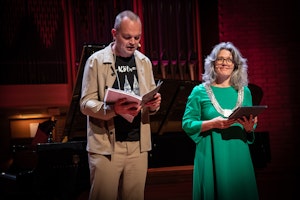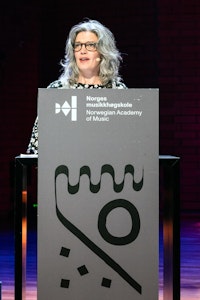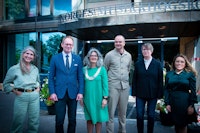Many thanks to Solveig Slettahjell for the song Alt jeg vet (All I Know)!
After all this wonderful and varied music and the kind words from the Minister of Research and Higher Education, Oddmund Hoel, we have come to the traditional segment, the Principal's Speech at the opening of a new academic year.
This will be my fourth opening speech. This means that when I was preparing for this, I was more concerned than ever before that I might start repeating myself—or even the previous speaker today.
There are quite a few speeches and greetings to give in this role, and I actually enjoy it very much. Especially those from the past week. I have had the pleasure of greeting those of you who are new bachelor students, those who are new to our continuing education programmes, new master students, exchange students, and, not least, this weekend: the young people who were attending their first gathering as part of our talent development programme.
In all of these settings, I encountered a sense of eager anticipation, and, I believe, also a certain amount of awe. Being new and becoming a student at various levels is exciting—it should be. And perhaps there is a unique kind of excitement in the air at an institution like this—The Norwegian Academy of Music







